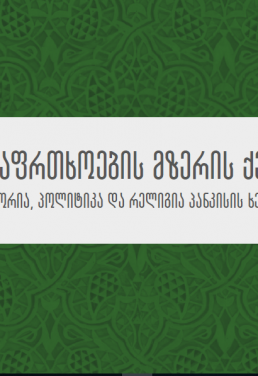საერთო ცხელი ხაზი +995 577 07 05 63


Number Of Pages: 252
Publication Year: 2018
ISBN: 978-9941-27-651-4
Authors: Barbare JANELIDZE, Maia BARKAIA
The initial purpose of this research was to understand why fighters traveled from the Pankisi
Gorge to Middle East. After closely studying the relevant literature, we discovered that large
part of academic works and political documents interpret political expression and actions
of Pankisi residents in the hegemonic framework of security, disregarding opinions of the
subjects, political context and historical circumstances. It should also be noted that giving
voice to Pankisi residents does not automatically ensure that their voices are being understood.
For a dominant framework, opinions generated outside of its borders are nothing
but a collection of syllables, or a voice without magnitude. Hence, epistemic injustice experienced
by Pankisi residents can be observed, on the one hand, in constant distrust of
their opinion, and on the other hand, in the marginalization of their political expression
and interpretation, which reveals hermeneutic injustice. Accordingly, talking about ongoing
political processes in the Pankisi Gorge demands constant “deconstructive intervention”20 in
the dominant framework. “Deconstructive intervention” is a term employed by philosopher
Jacques Derrida, which implies that critical reflection on borders and their meaning allows
for the transformation of law and order behind deeply held views. Deconstruction searches
for traces that have been methodologically expelled and eradicated by sterile totalities. However,
simultaneously, this very search is made possible by the traces left by these totalities.
Deconstruction identifies these traces and uses them to give voice to what does not correspond
to or fit into the dominant order of inclusiveness and exclusiveness. Deconstructive
interventions succeed in detotalizing sterile totalities by juxtaposing them against their own
differences.
The website accessibility instruction